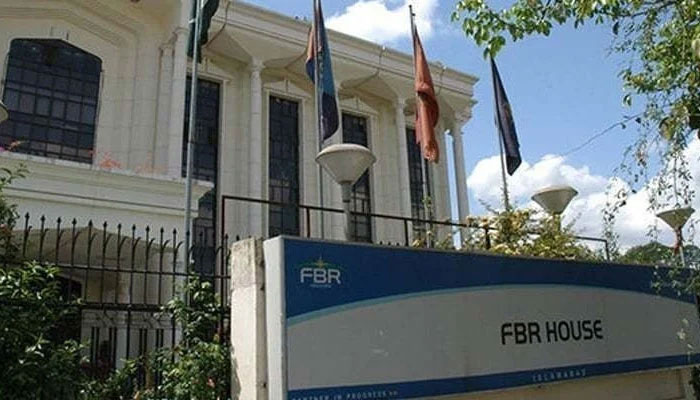FBR clears Rs65bn sales tax refunds
The major export-oriented sectors claim that the outstanding GST refunds were hovering around Rs500-600 billion
ISLAMABAD: The Federal Board of Revenue (FBR) has cleared verified refund claims of Rs65 billion under directives from the prime minister.
The major export-oriented sectors claim that the outstanding GST refunds were hovering around Rs500-600 billion, but the FBR has so far cleared only verified refunds, which remained stuck owing to the inefficiency of the tax system.
Sources said that the sales tax refunds were also being misused in the form of fake or flying invoices, so there are always arguments in favour and opposition to the release of refunds. However, the utilisation of an effective IT system and effective enforcement could plug the leak of fake and flying invoices for GST refunds.
This scribe sent out a question to FBR high-ups Monday to ascertain the exact amount of the stuck sales tax refunds. They replied that “all outstanding refunds have been issued, which were around Rs65 billion. Balances are only those that have been rejected by the system, and the taxpayers have to get their claims verified from the field formations,” they added.
However, according to an official announcement Monday, the FBR has disbursed all verified refund claims up to March 3, 2024, to exporters, this step will help exporters improve the liquidity crunch and boost the country’s exports.
The FBR issues all outstanding refunds as of March 3, 2024, to exporters, amounting to Rs65 billion. Trade bodies and export-oriented sectors have welcomed the move and said it will lead to economic prosperity and the creation of more jobs in the textile industry.
-
 Michelle Obama Gets Candid About Spontaneous Decision At Piercings Tattoo
Michelle Obama Gets Candid About Spontaneous Decision At Piercings Tattoo -
 Bunnie Xo Shares Raw Confession After Year-long IVF Struggle
Bunnie Xo Shares Raw Confession After Year-long IVF Struggle -
 Brooks Nader Reveals Why She Quit Fillers After Years
Brooks Nader Reveals Why She Quit Fillers After Years -
 Travis Kelce Plays Key Role In Taylor Swift's 'Opalite' Remix
Travis Kelce Plays Key Role In Taylor Swift's 'Opalite' Remix -
 How Jennifer Aniston's 57th Birthday Went With Boyfriend Jim Curtis
How Jennifer Aniston's 57th Birthday Went With Boyfriend Jim Curtis -
 JoJo Siwa Shares Inspiring Words With Young Changemakers
JoJo Siwa Shares Inspiring Words With Young Changemakers -
 James Van Der Beek Loved Ones Breaks Silence After Fundraiser Hits $2.2M
James Van Der Beek Loved Ones Breaks Silence After Fundraiser Hits $2.2M -
 Disney’s $336m 'Snow White' Remake Ends With $170m Box Office Loss: Report
Disney’s $336m 'Snow White' Remake Ends With $170m Box Office Loss: Report -
 Travis Kelce's Mom Donna Kelce Breaks Silence On His Retirement Plans
Travis Kelce's Mom Donna Kelce Breaks Silence On His Retirement Plans -
 Premiere Date Of 'Spider-Noir' Featuring Nicolas Cage Announced
Premiere Date Of 'Spider-Noir' Featuring Nicolas Cage Announced -
 Pedro Pascal's Sister Reveals His Reaction To Her 'The Beauty' Role
Pedro Pascal's Sister Reveals His Reaction To Her 'The Beauty' Role -
 Kate Middleton Proves She's True 'children's Princess' With THIS Move
Kate Middleton Proves She's True 'children's Princess' With THIS Move -
 Paul Anka Reveals How He Raised Son Ethan Differently From His Daughters
Paul Anka Reveals How He Raised Son Ethan Differently From His Daughters -
 'A Very Special Visitor' Meets Queen Camilla At Clarence House
'A Very Special Visitor' Meets Queen Camilla At Clarence House -
 Jodie Turner Smith Shares One Strict Rule She Follows As A Mom
Jodie Turner Smith Shares One Strict Rule She Follows As A Mom -
 Hailey Bieber Reveals KEY To Balancing Motherhood With Career
Hailey Bieber Reveals KEY To Balancing Motherhood With Career




